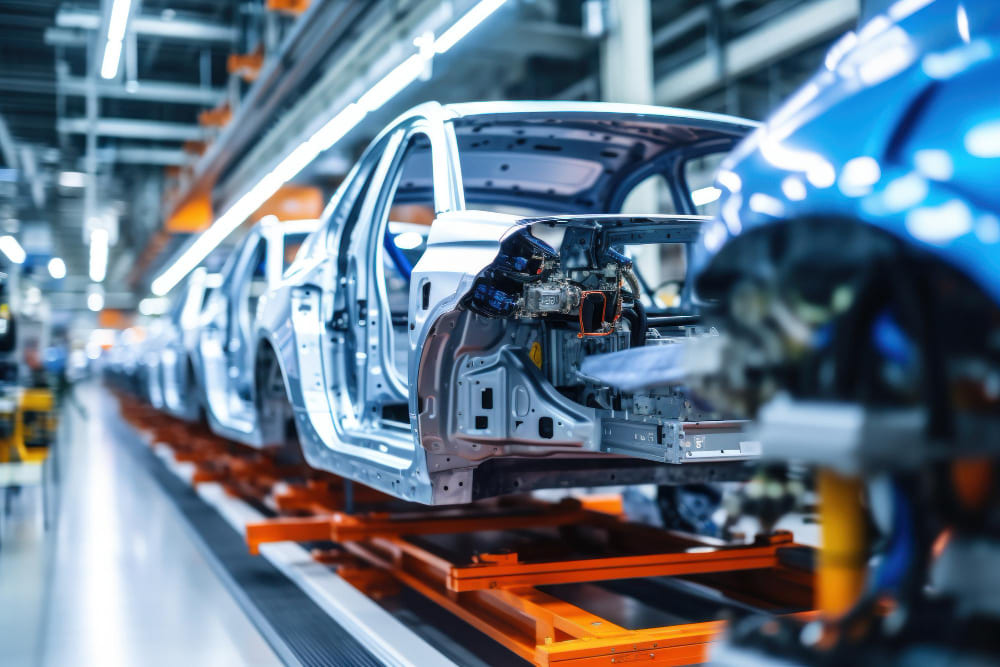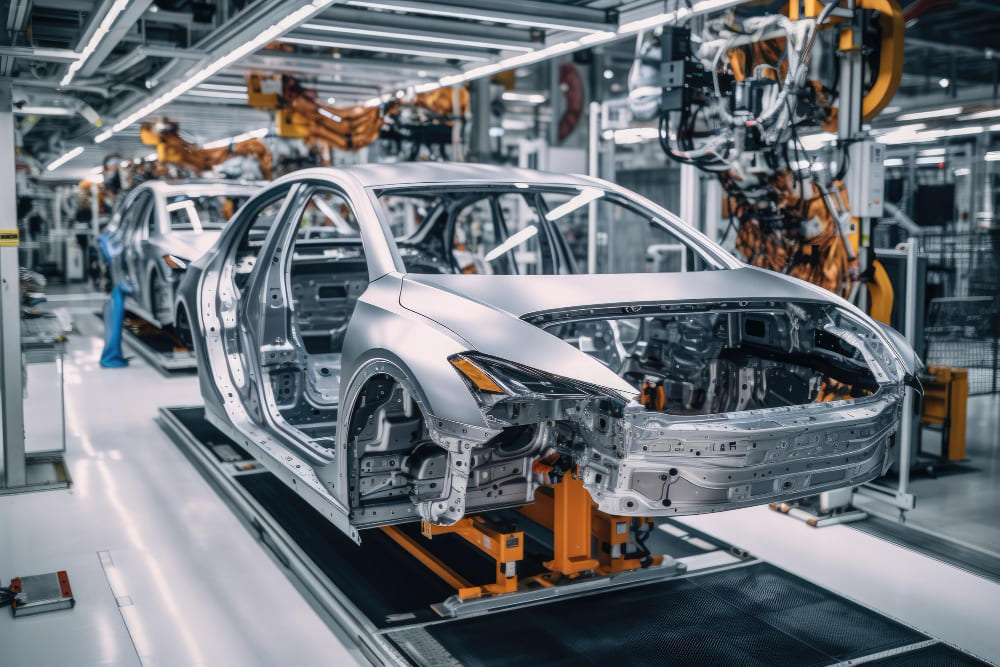Buckle Up – The Automotive Industry is Shifting Gears
Picture this – it's the year 2030, and you step into a sleek, silent car dealership, that has more in common with an Apple store than the auto showrooms of yesteryear, with not a tailpipe in sight. Rather than a traditional salesperson, a “mobility experience expert” guides you through a tour of the latest in electric, hydrogen (and other alternative-fuel), and autonomous powered vehicles, with nary a combustible engine car in sight.
This scenario may feel fanciful, yet the automotive transformation is already charging full speed ahead. At the turn of the century, they were considered niche curiosities. In fact, the consensus in the early 2000s that EV’s time had already come and gone inspired a documentary with the ominous title, “Who Killed the Electric Car?” Yet today, EVs are beginning to dominate test tracks and auto shows, rivaling their gas-powered counterparts on torque, power, and handling.
Meanwhile, self-driving capabilities were once confined to the realm of sci-fi fantasy, believed to be as realistic as the flying car. But industry experts project over a third of new vehicles sold could drive themselves by 2035.
This is not merely a shift in the way VHS gave way to DVD; it's a root-and-branch evolution, redefining how we move people and goods with interconnected, electric, autonomous, and shared mobility alternatives.
Are you ready for this radically reinvented automotive era? A new report from ManpowerGroup, “Automotive World of Work 2024 Outlook” suggests we buckle up for massive change in the automotive industry by 2030. The next decade promises to bring more transformation than the entire last century combined in vehicles, mobility infrastructure, and workforce skills.
The Road Ahead: Shaping the Future of Electric and Autonomous Driving
The shift towards 2030 is not just a surge in electric and hybrid vehicles; it represents a seismic evolution in the entire automotive landscape. Industry analysts foresee a remarkable transformation, with a projected 40% of global vehicle sales being electric by the end of this decade, translating into 40 million EVs and another 20 million hybrid electric vehicles. This not only underscores a significant departure from traditional combustion engines but propels us into an era where sustainability and innovation converge. Falling battery costs, extended range capabilities, expanding charging infrastructure, government carbon reduction mandates, and consumer pull towards greener transport are all contributing factors accelerating mass EV adoption.
Beyond their powertrain, vehicles themselves will become radically more advanced technologically. Advanced driver-assistance system (ADAS) features already integrated in vehicles today, like automatic emergency braking, lane assist, and self-parking, will continue the progress on the road to fully autonomous capabilities.

Fueling the Future: Meeting the Talent Demands of Tomorrow
Now, let's talk about the real heroes of this revolution — the workforce. As the automotive industry transitions to greener technologies like electric and alternative-fueled vehicles, it will drive massive demand for green skills across all functions. In fact, ManpowerGroup’s recent report, “A People-First Green Business Transformation,” found that 70% of all employers report they are urgently recruiting or planning to recruit green talent and people with sustainability skills, with the highest demand in renewable energy, manufacturing, operations, and IT.
Reskilling programs must make it a priority to build this green talent pipeline and help the automotive workforce adapt to the greening world of work. However, despite surging demand, only 1 in 8 workers currently have more than one green skill, sparking an exponential shortage as companies compete for limited talent. Equipping people with versatile green competencies will ensure an inclusive, socially, and environmentally conscious automotive future.
In addition to green skills, vehicle tech advancements, new ownership models, and shifts in energy will require enormous reskilling and change management across the broader automotive workforce. We're talking the need for workers with expertise in areas like EV engineering, sustainable battery design, renewable energy systems, as well as roles not traditionally associated with the auto industry such as software engineers, data scientists, chemists, cybersecurity specialists, electronics technicians, and more to make this transformation possible. And let's not forget the push to bring more women and youth into these emerging technical roles throughout the industry. It's not just a minor shift — it's a talent revolution.
Despite this impending tidal wave, most companies are woefully unprepared. More than three-quarters (76%) of automotive employers say they are struggling to find the skilled talent they need today. Top talent deficits identified include Operations & Logistics (29%), IT & Data (25%), Engineering (22%), and Manufacturing & Production (19%). The new technologies exacerbating these talent gaps show no signs of slowing.
The hard reality is that even fewer workers will develop the expertise needed to engineer, analyze, produce, maintain, and repair these vehicles without proactive efforts to hire, retain, and skill the workforce of tomorrow.
Still, recruitment alone cannot fill the immense talent needs on the horizon. Reskilling existing workers will be essential to keep incumbent companies competitive. Proactively preparing talent strategies must take equal priority to designing cutting-edge vehicles.

Strategies for Thriving Amid Transformation: Insights from ManpowerGroup
Agile companies are urged to proactively shift gears now, as those who delay risk being left behind. The coming disruption promises a dizzying velocity of change, but the potential for safer, smarter, and more sustainable transportation can motivate and unite industry players, policymakers, and the workforce.
Together, we can build an inclusive automotive ecosystem that powers us into the future. So, buckle up for the ride ahead.
Fill in the form below to download the full “Automotive World of Work 2024 Outlook” report to delve deeper into the workforce impacts within the evolving automotive industry.

.jpg)